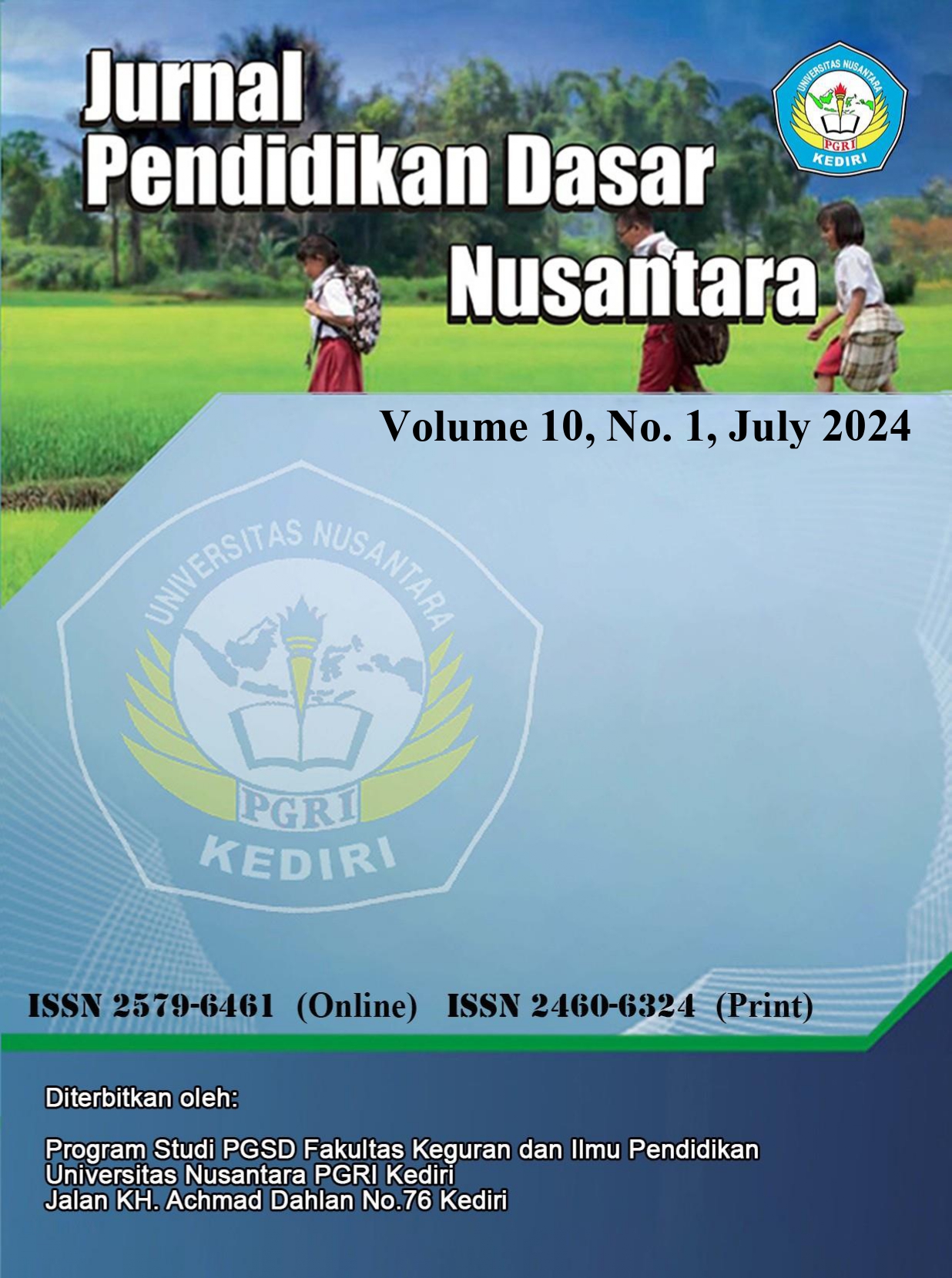Implementation of Science Literacy in Science Study Courses for PGSD Students
DOI:
https://doi.org/10.29407/jpdn.v10i1.22808Keywords:
Science Literacy, Science Study, PGSD StudentsAbstract
In the world of Science Education, Science Literacy plays an important role in preparing quality and competent students who are able to compete at the international level. To cultivate and improve science literacy in science education, lecturers must create a learning environment that actively involves students. Learning that is dominated by lecturer-centered methods, such as lectures and textbooks, produces passive learners, which can lead to boredom and lack of reasoning and knowledge in science literacy. This study aims to explore the implementation of science literacy in the Science Study Course for PGSD students. The methodology involves literature studies, field observations, and interviews. Data were obtained through reviewing articles, journals, and other relevant sources related to the research, supported by observations and interviews, and then analyzed qualitatively through descriptive descriptions. The results of the study show: (1) the implementation of science literacy facilitates students in understanding the material presented, namely the solar system through various activities such as reading scientific texts, writing scientific essays, creative activities or making posters, searching for information, reflection, presentations, discussions, and questions and answers, (2) supporting factors in the science literacy movement are the lecturers who teach, available facilities, scientific articles, and book references.
Downloads
References
Arief, M.K. (2015). Penerapan levels of inquiry pada pembelajaran ipa tema pemanasan global untuk meningkatkan literasi sains. Thesis. Bandung: Universitas Pendidikan Indonesia.
Asrizal, A., Festiyed, F., & Sumarmin, R. (2017). Analisis Kebutuhan Pengembangan Bahan Ajar Ipa Terpadu Bermuatan Literasi Era Digital Untuk Pembelajaran Siswa Smp Kelas Viii. Jurnal Eksakta Pendidikan (Jep), 1(1), 1. Https://Doi.Org/10.24036/Jep/Vol1-Iss1/27
Basam, F., Rusilowati, A., & Ridlo, S. (2016). Pancasakti Science Education Journal. Formulasi Minyak Atsiri Daun Jeruk Purut (Citrus Hystrix D.C.) Sebagai Sediaan Aromaterapi, 7(1), 1–8.
Fitariya, F. (2018). Meningkatkan Literasi Sains Di Sdn Sidokumpul Dengan Metode Exsperimen. Ptk A3 Pgsd Fkip Universitas Muhammadiyah .... Http://Eprints.Umsida.Ac.Id/3048/
Handayani*, N. A., & Jumadi, J. (2021). Analisis Pembelajaran Ipa Secara Daring Pada Masa Pandemi Covid-19. Jurnal Pendidikan Sains Indonesia, 9(2), 217–233. Https://Doi.Org/10.24815/Jpsi.V9i2.19033
Kristyowati, R., & Purwanto, A. (2019). Pembelajaran Literasi Sains Melalui Pemanfaatan Lingkungan. Scholaria: Jurnal Pendidikan Dan Kebudayaan, 9(2), 183–191. Https://Doi.Org/10.24246/J.Js.2019.V9.I2.P183-191
Narut, Y. F., & Supradi, K. (2019). Literasi Sains Peserta Didik Dalam Pembelajaran Ipa Di Indonesia. Jurnal Inovasi Pendidikan Dasar, 3(1), 61–69.
Rizkita, L., Suwono, H., & Susilo, H. (2016). Pengaruh Pembelajaran Socio-Scientific Problem-Based Learning Terhadap Keterampilan Metakognitif Dan Hasil Belajar Kognitif Siswa Kelas X Sman Kota Malang. 2017, 1(4), 732–738.
Setiawan, A. R. (2019). Efektivitas Pembelajaran Biologi Berorientasi Literasi Saintifik. Thabiea : Journal Of Natural Science Teaching, 2(2), 83–94. Https://Doi.Org/10.21043/Thabiea.V2i2.5345
Syofyan, H., & Amir, T. L. (2019). Penerapan Literasi Sains Dalam Pembelajaran Ipa Untuk Calon Guru Sd. Journal Pendidikan Dasar, 10(2), 35–43.
Van Noordwijk, M. (2021). Agroforestry-Based Ecosystem Services: Reconciling Values Of Humans And Nature In Sustainable Development. Land, 10(7). Https://Doi.Org/10.3390/Land10070699
Zuriyani, E. (2021). Implementasi Pelatihan E-Learning Era Pandemik. Jurnal Perspektif, 14(1), 138–160. Https://Doi.Org/10.53746/Perspektif.V14i1.42
Downloads
Published
Issue
Section
License
Authors who publish with this journal agree to the following terms:
- Copyright on any article is retained by the author(s).
- The author grants the journal, the right of first publication with the work simultaneously licensed under a Creative Commons Attribution License that allows others to share the work with an acknowledgment of the work’s authorship and initial publication in this journal.
- Authors are able to enter into separate, additional contractual arrangements for the non-exclusive distribution of the journal’s published version of the work (e.g., post it to an institutional repository or publish it in a book), with an acknowledgment of its initial publication in this journal.
- Authors are permitted and encouraged to post their work online (e.g., in institutional repositories or on their website) prior to and during the submission process, as it can lead to productive exchanges, as well as earlier and greater citation of published work.
- The article and any associated published material is distributed under the Creative Commons Attribution-ShareAlike 4.0 International License

































